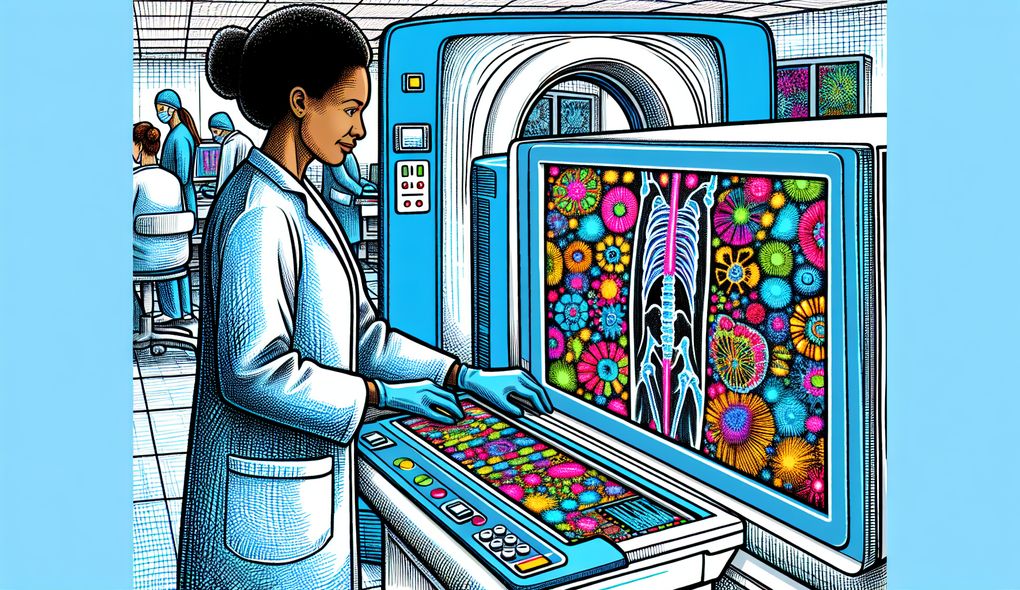Tell us about a time when you had to make a quick decision during a fluoroscopic procedure. How did you handle it?
INTERMEDIATE LEVEL

Sample answer to the question:
During a fluoroscopic procedure, I once encountered a situation where the patient experienced severe pain and discomfort. It was clear that I needed to make a quick decision to address the issue. I immediately stopped the procedure, communicated with the patient to understand their symptoms, and notified the physician. We decided to administer pain medication to alleviate the patient's discomfort. After ensuring the patient's stability, we resumed the procedure and closely monitored their condition throughout. The decision to prioritize the patient's well-being and take prompt action was crucial in providing safe and effective care.
Here is a more solid answer:
During a fluoroscopic procedure, I encountered a situation where the patient's heart rate began to decrease rapidly. Recognizing the urgency, I quickly assessed the equipment and noticed that a cable had become loose, interrupting the signal from the patient's heart monitor. I swiftly reconnected the cable, restoring the heart rate monitoring capabilities. However, the patient's heart rate continued to fluctuate, indicating more complex underlying issues. I promptly informed the physician and suggested the possibility of administering intravenous fluids to stabilize the patient. The physician agreed, and we initiated the treatment, closely monitoring the patient throughout the procedure to ensure their safety. This experience highlighted my ability to quickly identify and address equipment malfunctions while effectively communicating with the healthcare team to provide optimal patient care.
Why is this a more solid answer?
The solid answer provides a more comprehensive response by including specific details about the candidate's knowledge of fluoroscopic equipment and procedures, attention to detail, problem-solving skills, and patient care and communication skills. It demonstrates the candidate's ability to troubleshoot equipment issues, think critically in high-pressure situations, and collaborate with the healthcare team. However, it can still be improved by further elaborating on the candidate's communication with the physician, documentation of the incident, and their role in ensuring radiation safety during the procedure.
An example of a exceptional answer:
During a fluoroscopic procedure, I encountered a critical situation where the patient suddenly developed ventricular fibrillation, a life-threatening cardiac arrhythmia. Recognizing the urgency, I immediately initiated cardiopulmonary resuscitation (CPR) while simultaneously alerting the healthcare team. As I continued performing CPR, I quickly assessed the fluoroscopic equipment and identified the need to switch to a high-energy defibrillator. With the collaboration of the team, we successfully defibrillated the patient and restored their cardiac rhythm. Throughout the entire process, I ensured radiation safety by promptly shielding the patient and myself during the CPR maneuvers. After stabilizing the patient, I assisted the physician in placing a temporary pacemaker to prevent further cardiac complications. This experience showcased my ability to make split-second decisions, effectively perform life-saving measures, and prioritize patient safety while operating the fluoroscopic equipment.
Why is this an exceptional answer?
The exceptional answer goes beyond the solid answer by providing a highly detailed and compelling narrative of a critical incident during a fluoroscopic procedure. It showcases the candidate's exceptional problem-solving skills, ability to handle high-pressure situations, prioritization of patient safety, and expertise in fluoroscopic equipment and procedures. The candidate effectively communicates their role in coordinating with the healthcare team to save the patient's life and ensure radiation safety. The answer demonstrates the candidate's advanced knowledge, skills, and experience in the field.
How to prepare for this question:
- Familiarize yourself with different fluoroscopic procedures and the associated equipment.
- Stay updated on the latest advancements in fluoroscopy technology and best practices for radiation safety.
- Develop your critical thinking and problem-solving skills by practicing scenarios involving quick decision-making during fluoroscopic procedures.
- Improve your communication skills, as effective communication with the healthcare team is crucial in such situations.
- Pay attention to detail in documenting incidents and maintaining accurate records of procedures and patient outcomes.
What are interviewers evaluating with this question?
- Knowledge of fluoroscopic equipment and procedures
- Attention to detail
- Problem-solving skills
- Patient care and communication skills

